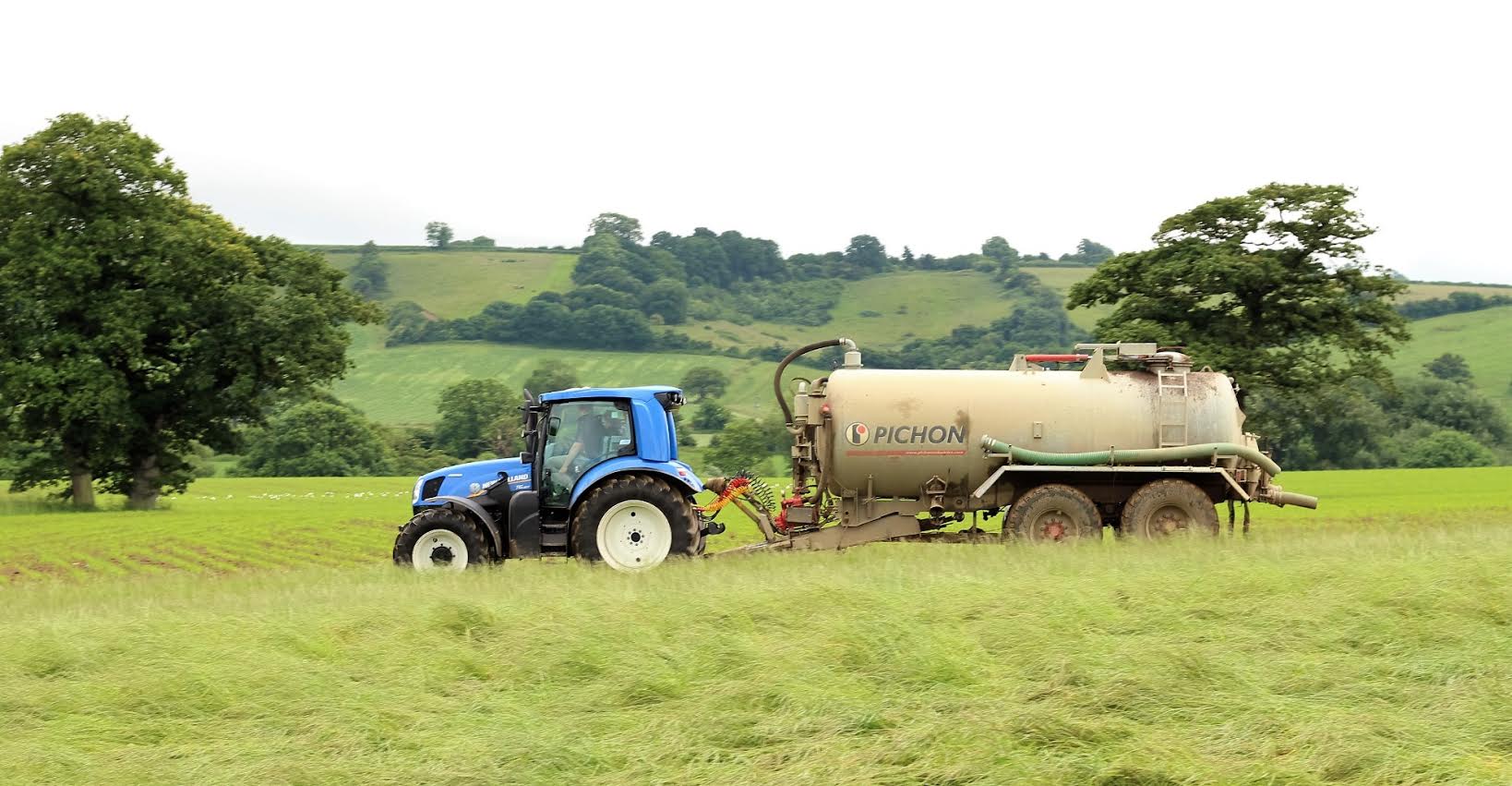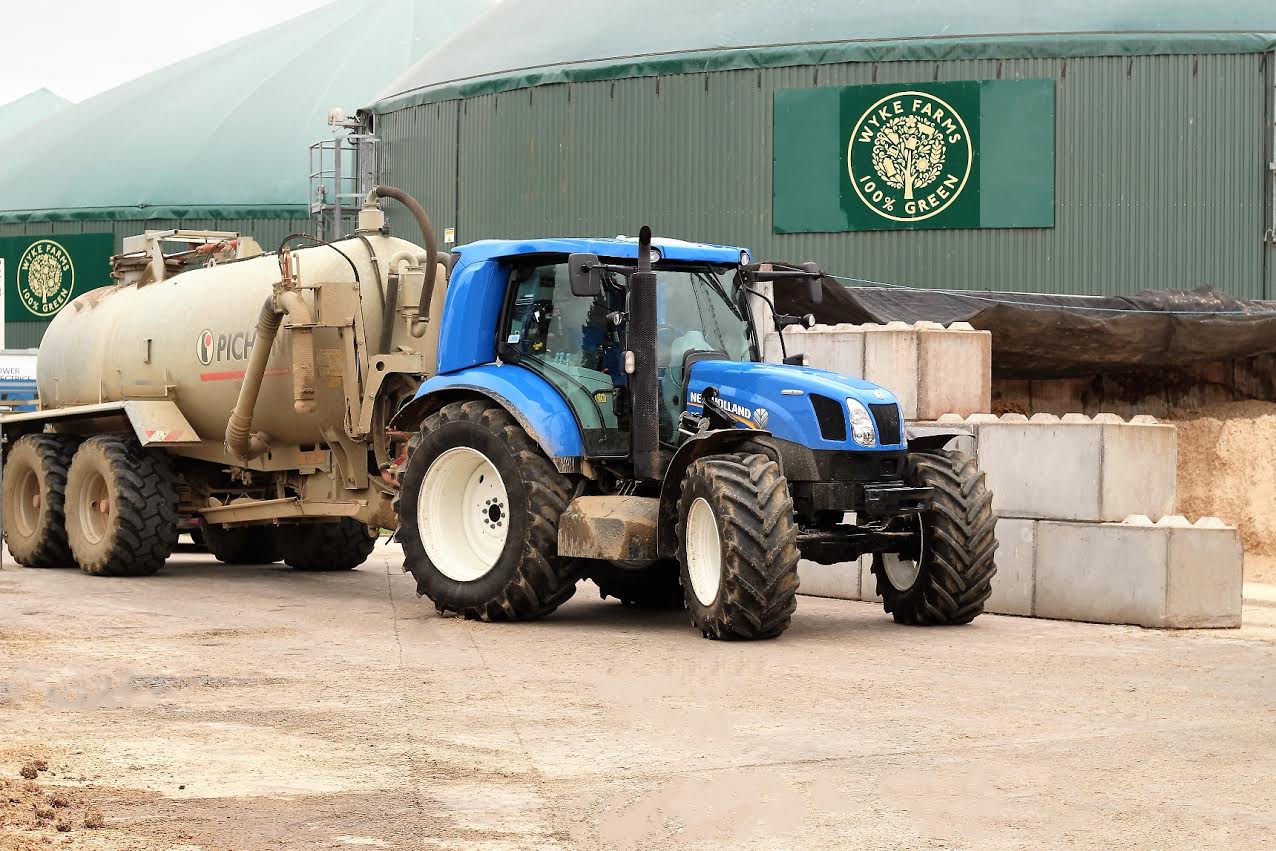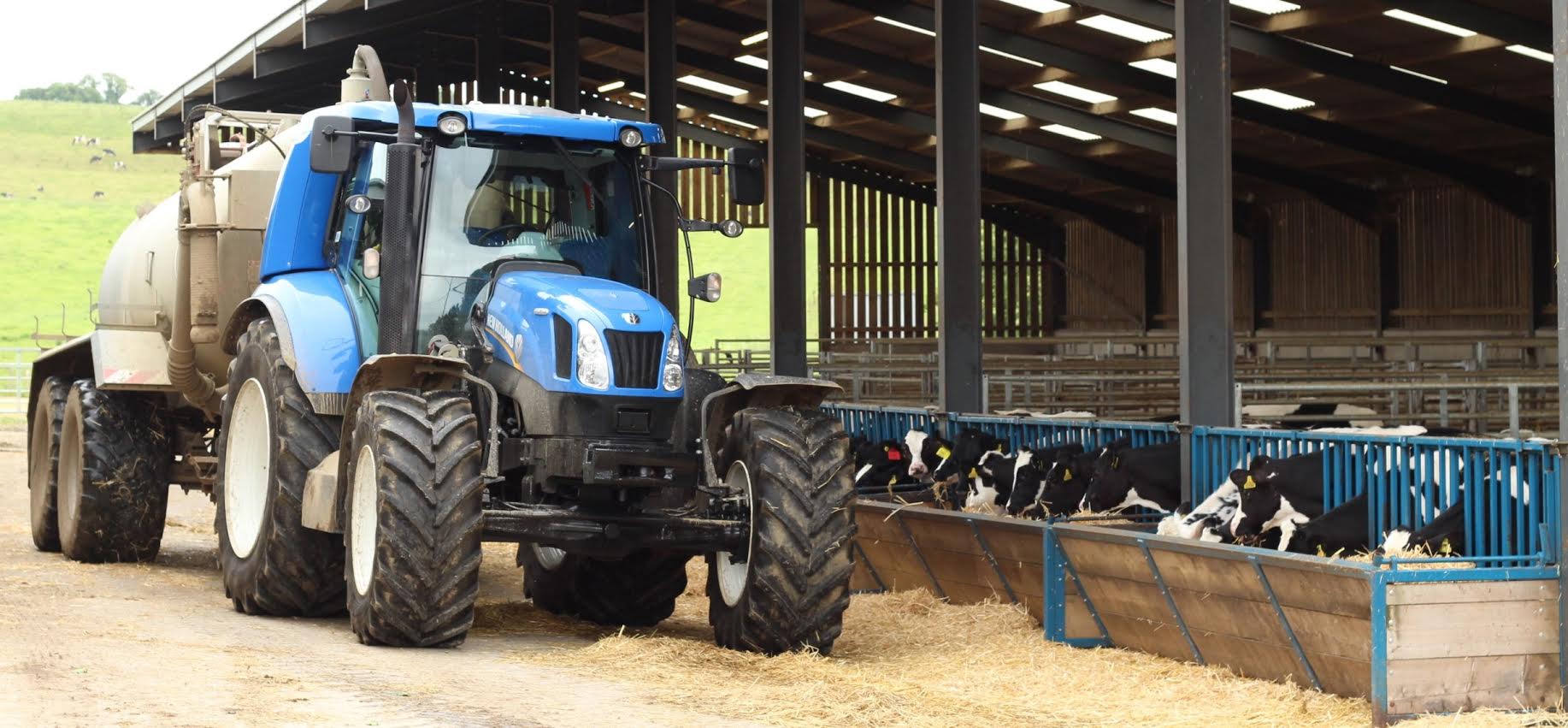
New Holland’s second generation T6.180 Methane Power tractor has received positive feedback from testing by Wyke Farms – one of the UK’s biggest Cheddar cheese producers – to see how it stood up to practical farm conditions.
The methane-powered tractor was developed by New Holland as a 100% sustainable solution to increasing fuel costs.
In the UK, where on-farm biogas plants are becoming more common, there could be an ample fuel supply on hand.
The tractor draws on commercial vehicle technology already used by New Holland’s sister brand, Iveco.
By adapting existing engine technology, fitting a small three-way catalytic converter housed within a standard tractor chassis and cab, the company has ensured the methane tractor looks and drives just like a diesel-powered tractor while exceeding the current Tier 4B emissions legislation.
At Wyke Farms in Somerset, the prototype tractor was put through its paces with a slurry tanker, transporting material to and from the farm’s anaerobic digester (AD) plant.
Three large anaerobic digesters process waste from the farm’s 1,000 dairy cows, local cider waste and other suitable material.
The resulting methane is used to power the farm’s boilers and generate electricity for the farm and the cheese factory. Excess gas is sold back to the grid to serve the local community.
'Need for fuel efficient vehicles'

Roger Clothier, Wyke Farms’ Director who tested the prototype tractor said: "We need fuel efficient vehicles with a good power to weight ratio to pull heavy tanks around the farm.
"My first impression is that this looks and feels just like a normal tractor.
"With a combined gross weight of 27 tonnes, the tractor and fully loaded tanker was a little slow to get off the line, but once moving the tractor came alive.
"Engine braking downhill was good and there was plenty of power in the mid-range and top-end with no torque issues when going uphill - it drove just like a diesel."
The farm’s preferred power bracket for its tractor fleet is around 170hp. They perform a range of tasks; mainly tanker and trailer transport as well as the usual range of farm applications including ground preparation.
The T6.180 Methane Power prototype offers 179hp max power which would cope with any of the duties required at Wyke Farms but Roger felt that an additional 20hp would be preferable, particularly when under heavy load.
The use of compressed natural gas (CNG) in vans, trucks and buses is well developed and limited only by storage capacity on the vehicle.
New Holland has managed to squeeze 300L (52kg) of compressed methane into nine tanks around the tractor; enough for around six hours of work depending on activity and load.
Wyke Farms achieved around four and a half to five hours for tanker transport work during testing.
Roger commented that while a comparable diesel tractor would work for longer on one tank of fuel, refilling the methane tractor wasn’t too much of an issue.

The farm used an onsite CNG trailer from Gas Vehicle Alliance during the test period. Filling nine methane cylinders was quick and easy through a single inlet on the tractor.
Increasing the running time requires more gas cylinder storage; something that is difficult to achieve with current cylinder shape and technology.
However, New Holland is looking at potentially adding tanks to the front ballast and on towed implements.
Wyke Farms uses around 12,000L of red diesel a month at a cost of £4,000. Running costs for the T6.180 Methane Power tractor were difficult to judge on this particular test however New Holland estimates that fuel cost savings of 25 to 40% could be achieved. In addition, no Ad Blue is required.
In the cab the layout of controls is much the same as a diesel-powered T6, with a methane tank monitor to driver’s right.
Front visibility was good but the large rear pillars containing gas tanks can restrict visibility.
For the tractor drivers at Wyke Farms this was a slight issue as they need good visibility left and right when reversing tankers.
'Similar to a standard diesel tractor'
Nick Fone, a freelance machinery journalist who took the T6.180 Methane Power tractor for a test drive while at Wyke Farms was pleasantly surprised by how similar it was to a standard diesel tractor. But unlike Roger he felt the way the engine responded was quite different.
Nick said: "It pulls loads well up to a point, but then the torque drops off.
"However, it’s understandable that it would have a different torque curve when it’s using a totally different fuel to diesel.
"There’s less engine noise so it’s much quieter in the cab, though this had the effect of making the transmission noise more audible, which I wasn’t expecting.
"The bigger rear pillars that house the gas cylinders make the cab feel a little smaller and darker than usual but it didn’t impact too much on my visibility."
While positive about his drive in the T6.180 Methane Power, Nick felt that the biggest customer base for a methane tractor would be farms with their own AD plants.
He believes that these farms mostly run 200hp plus tractors and the T6.180 Methane Power could be a little underpowered.
Another issue highlighted by Nick was the availability of gas from AD plants. Many plants are using methane to generate electricity for the grid.
Relatively few are generating gas to grid, and where they are, they would need to compress and meter the methane for use in vehicles on-farm.
However, farms without a biogas plant could avoid the expense of additional plant investment by using the gas from the CNG distribution network.
The feed-in tariff for renewable gas is high; drawing from the domestic CNG network would enable suppliers to continue to claim non-domestic Renewable Heat Incentive (RHI) tariff payments while benefitting from the savings that methane fuel could offer.
Where farms are renewable-energy focussed a methane-powered tractor could be the perfect fit. Roger Clothier can see the potential benefits.
He said: "Not only does the methane tractor have the potential to reduce polluting emissions by 80% and cut our fuel costs by a significant amount, it could contribute to our commitment to lowering our carbon footprint - a key element of our ‘100% Green’ Initiative at Wyke Farms - which is highly valued by our customers."
So, could Wyke Farms run a methane powered tractor on gas produced by its own AD Plant?
In theory yes, but it would need to invest in a compressing plant to make the gas suitable for use in engines, either direct from the Biogas plant or drawn back from the grid.
Roger commented that depending on costs, there could be an argument for investing in a centralised filling point for the local area, provided there was sufficient demand from neighbouring farmers and hauliers running methane-powered vehicles.
Testing of the T6.180 Methane Power tractor continues as the prototype tours other European markets.
It will then return to its home in Italy at La Bellotta, New Holland’s ‘Energy Independent Farm’, where the company has been working towards its Clean Energy Leader strategy for the past 10 years.
